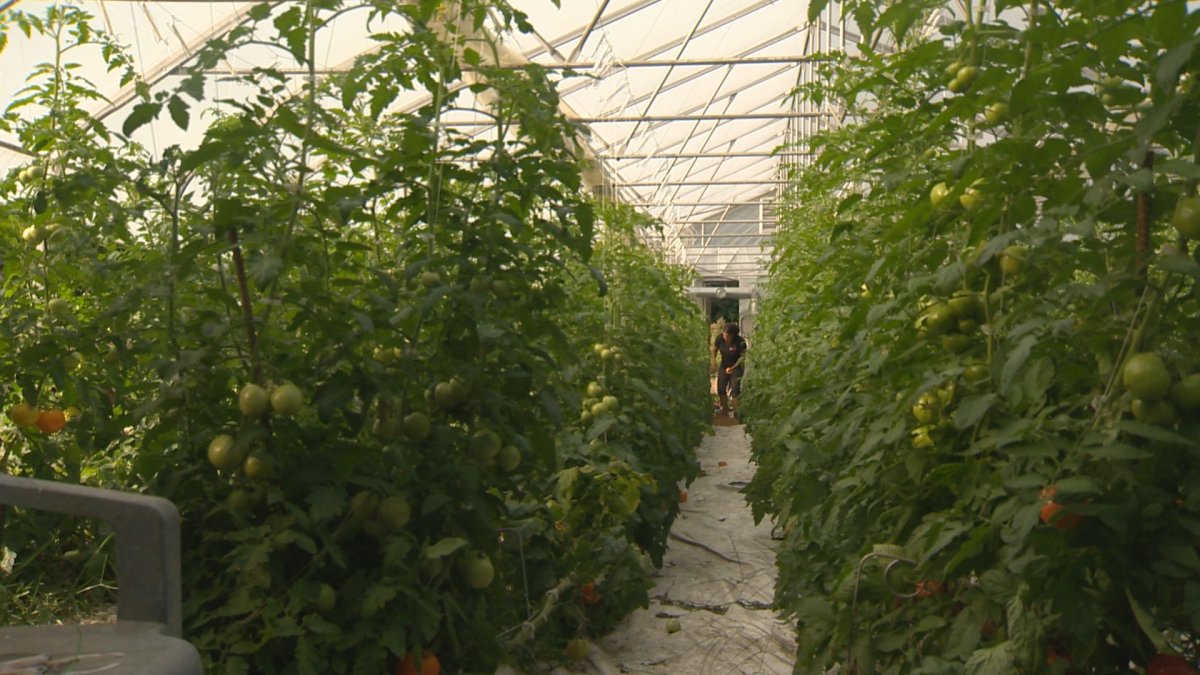There could be another unexpected casualty of the Enbridge natural gas pipeline explosion near Prince George: produce prices.

The larger of two of Enbridge’s natural gas pipelines that feed FortisBC customers exploded on Oct. 9, and the smaller of the two is currently running at reduced capacity. Enbridge says it could be mid-November before both are operational again.
B.C. greenhouse growers say the uncertainty surrounding gas supplies is prompting many in their industry to delay planting their winter crops — or even considering scrapping the season entirely.
“The biggest thing is the uncertainty, because we start our new crop in early December, young plants, and it takes four months for them to mature to bearing fruit — the entire winter season,” said Armind Vander Mulen, greenhouse grower and president of the BC Greenhouse Growers Association.
WATCH: Enbridge gets approval to restart secondary gas line

“Once you start growing a crop, you can’t turn back. You can’t turn down the heat.”
Growers, he said, have been told by FortisBC that gas capacity could be dropped to 50 per cent — something he said the industry can’t accommodate.
“Under a cold winter situation that would leave us essentially having to switch off our gas, which is very impractical or un-doable for many of our growers,” Vander Mulen said.
Association executive director Linda Delli Santi said many growers are talking about holding off between eight and 12 weeks until they know there is a stable gas supply before committing to a crop.
At the end of the day, she said, those holdups will translate to higher prices for consumers.
“Our members selling their products will be looking to recoup their increased cost, they’ll put the prices up for the product,” she said.
WATCH: New report says food prices will rise in 2018

“On the other hand, we also export a lot of our product, so when we go to the table with those prices, our competitors won’t have those prices — they don’t have the higher input costs,” Delli Santi said. “So it’s maybe instead difficult to find local products.”
The association says many growers do have heating systems that can accommodate alternate fuel such as diesel, but that their equipment is only designed to be used for a few days per season, and would require constant maintenance.
It’s calling for FortisBC to guarantee growers at least 80 to 90 per cent capacity.




Comments